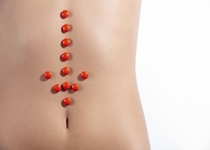 The microbiome is a strange thing, don’t you think? The idea that certain levels of bacteria inside your body—and that many people add more bacteria to their diet to boost these levels—seems a bit counterintuitive. And how do you even know what a healthy microbiome should look like?
The microbiome is a strange thing, don’t you think? The idea that certain levels of bacteria inside your body—and that many people add more bacteria to their diet to boost these levels—seems a bit counterintuitive. And how do you even know what a healthy microbiome should look like?
I was thinking about the strange notion of healthy bacteria and the microbiome recently, so I dove into the subject, scanning news articles and studies. The information I got was rather interesting, so I thought I’d share what came of my research with you.
The microbiome has been one of those hot topics in medicine in the past few years. If you’re unfamiliar with it, “microbiome” is the term used to describe the bacterial ecosystem inside your body. It’s responsible for physiological processes like immune responses, digestion and nutrient transport, and your susceptibility to conditions like weight gain, diabetes, and colon cancer.
There are so many factors that play a role in how your own microbiome appears and the landscape of the trillions of bacteria living inside you. These factors include:
- Your diet
- Your genetics
- Where you live
- What you’re exposed to
Alterations to your environment, lifestyle, and diet can all create changes to this vast population of bacteria.
So is there such thing as a “healthy” microbiome? That’s an interesting question that’s met with varying responses. There’s been research showing that people can be in perfect health with what looks like an “unhealthy microbiome.” For example, the microbiome of a completely healthy pregnant woman resembles the microbiome of a person with metabolic syndrome.
I’ve taken probiotics in the past to help with digestion, and they’ve worked. I wouldn’t say that I was unhealthy when I took them; I simply needed them for a brief period of time to get back on track. Other people have gone through procedures, like fecal transplants, that have been successful in helping them.
I believe a diverse microbiome is healthy, and that if you’re not sick, there’s no reason to stress over it. Your microbiome is a very specialized, individualized system; two perfectly healthy people can have a vastly different bacterial environment inside them. If you eat a balanced diet and your body is functioning at a high level (you don’t feel ill), you’ve probably got a suitable microbiome for yourself. Therefore, you likely don’t need probiotics or other products marketed towards developing a healthy microbiome.
There have been some people who advocate re-engineering the microbiome to a more “natural” state, getting it back to how it used to look hundreds of years ago or how it still looks in some communities around the world today. But this can be dangerous. There are different demands and risks for people living in, say, New York City as compared to those who live in a small, rural community in Papua New Guinea. The microbiome of people who live in these regions will reflect that. Simply put, there’s no “one-size-fits-all” microbiome standard.
The best way to be sure your microbiome is healthy for you is to simply listen to your body. If you’re feeling ill or off, or your body just isn’t functioning as it normally would, then probiotic foods may be the answer.
Sources for Today’s Article:
Belluck, P., “A Promising Pill, Not So Hard to Swallow,” New York Times web site, October 11, 2014; http://www.nytimes.com/2014/10/12/us/a-promising-pill-not-so-hard-to-swallow.html?_r=0.
Koren, O., et al., “Host remodeling of the gut microbiome and metabolic changes during pregnancy,” Cell August 3, 2012; 150(3): 470–80, doi: 10.1016/j.call.2012.07.008.
Ding, T. and Schloss, P.D., “Dynamics and associations of microbial community types across the human body,” Nature May 15, 2014; 509(7500): 357–60, doi: 10.1038/nature13178.
Kodaman, N., et al., “ Human and Helicobacter pylori coevolution shapes the risk of gastric disease,” PNAS January 28, 2014; 111(40: 1455–60, doi:10.1073/pnas.1318093111.
Yong, E., “There Is No ‘Healthy’ Microbiome,” New York Times web site, November 1, 2014; http://www.nytimes.com/2014/11/02/opinion/sunday/there-is-no-healthy-microbiome.html.
